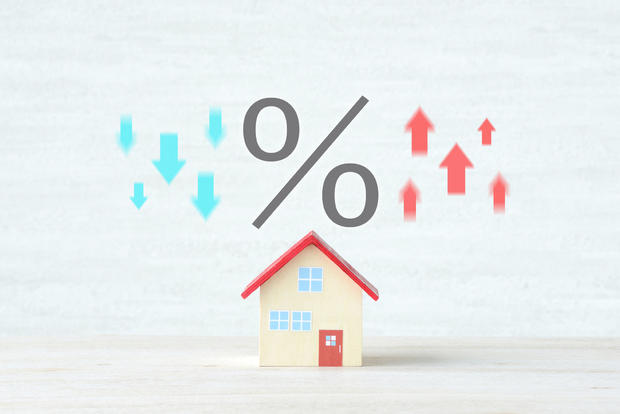Will mortgage interest rates increase in September?
High mortgage rates have plagued homebuyers for some time now. As of August 30, 2023, the average rate for a 15-year mortgage is 6.81%, and the average rate for a 30-year mortgage is 7.53%. That's the highest they've been in 21 years.
Elevated mortgage rates make borrowing more expensive, meaning homebuyers pay significantly more interest over the life of their loans. This can be discouraging at best and downright prohibitive at worst. Is relief anywhere in sight?
See today's mortgage rates here.
Will mortgage interest rates increase in September?
Mortgage rates are tied to the federal funds rate, which has been on the rise since March 2022. And while the Federal Reserve decided to pause rates in June, signs point to another rate hike in September.
In a speech last week, Federal Reserve Chair Jerome Powell indicated the Fed will resume raising rates as long as necessary to tamp down inflation.
"Although inflation has moved down from its peak — a welcome development — it remains too high," Powell said. "We are prepared to raise rates further if appropriate, and intend to hold policy at a restrictive level until we are confident that inflation is moving sustainably down toward our objective."
While Powell hedged his statements by saying "there is always uncertainty" when it comes to predicting the economy, experts we spoke to recently largely agreed a rate hike in September is likely. If this is the case, mortgage rates will go higher, too.
Compare top mortgage rates online now.
Why you should lock in a mortgage rate today
We may not know precisely where mortgage rates are headed, but the general consensus is that they haven't reached their peak. However, now might still be the right time to lock in a mortgage rate. Here's why.
Rates could increase
With many predicting interest rates will go higher this year, it could make sense to take out a mortgage now before it becomes even more expensive to do so.
"If inflation remains elevated over the second half of 2023, that may force the Fed to raise rates more than anticipated, which would push mortgage rates higher than current predictions," Peter Idziak, a senior associate at Polunsky Beitel Green specializing in mortgage law, previously told CBS News.
If you have no immediate need to buy a home, you may opt to ride out interest rate hikes and resume house hunting once rates go down. However, if you intend to move in the near future, it may be smart to act now before rates go even higher.
You can secure your dream home
Sometimes, you fall in love with a home so much it's worth compromising on the rate. Dream homes can be few and far between, so waiting until rates decrease — which they may not do for a while — could mean missing out on an opportunity you'll regret for years to come.
A common adage among real estate experts is "marry the house, date the rate." In other words, you can always look for ways to lower your rate down the line, and accepting a higher rate for now could mean securing your ideal home for the long run.
You could refinance later
Locking in a rate now doesn't mean you'll be stuck with that rate forever. Once you've built up some equity in your home, you can refinance at whatever rate is available at that time. This can make homeownership less expensive in the long run, enabling you to get into a house now and still save down the road.
Start your mortgage search online today.
The bottom line
The bad news is that mortgage rates are likely to stay high — or climb higher —in the months to come. The good news is that there are still things you can do to get the best rate possible today. By shopping around, increasing your down payment and expanding your home search, you can make homeownership as affordable as possible, even in a high-rate environment.




